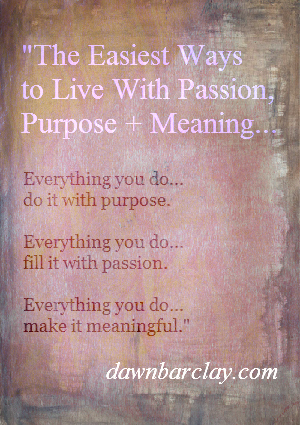
Continuous effort—not strength or intelligence—is the key to unlocking our potential.
I fully believe that if a person has the desire and willingness to remain curious about the world, ask questions, seek out information and knowledge, spark up their brain and remove all barriers and blocks to learning, then they can change their lives: with effort they unleash their own potential.
Unfortunately, for many of us the process that was supposed to instil that passion within us is the exact same system that removed it, extinguished it, and tragically (and I do mean that) for some, closes the door for life.
It doesn’t make sense. All of us arrive bursting to learn, the majority leave bursting to get out.
(Aside: I own the fact I have only experienced systems in the UK, I know your story and experience may be different.)
So, have you lost your love of learning?
When?
What was the date?
How can you open the door again, if your previous experience left a bitter taste in your mouth?
Did not making the grade with the game leave you lacking self-esteem and confidence in your ability to learn? For that, I am so sorry.
You see, I believe that school is just a game: play it well and pass the assessments that the system states are ‘crucial’ to your future, you’ll survive.
If you aren’t able to memorize the games, in the format it was taught and recite it when the system decides you should, you’ll lose (according to the rules of the system.)
If you’re lucky, you may be supported by an adult who is more passionate about you and your learning, rather than the systems and rules that they have chosen to work in.
With their inspirational help they may be able to help you learn what’s important, rich and meaningful, as opposed to what is measureable. So at least you’ll leave the game with skills and tools to help you survive in the adult world. But that’s if you’re lucky.
Labels Limit Learning Potential
For years, I’ve delivered employability and training programs to long term unemployed adults with major barriers to employment: those are the labels that were given by the organisations funding the programs, not me.
I prefer just to use the word ‘people’, I don’t believe people need ‘stamped’. In each program around 80% of the individuals present had failed the game of ‘school’. No qualifications, no paper to measure their success as a player of the game.
My remit according to funders was to prepare the individual for work: done and I had one secret mission, to help the individual become passionate about learning again.
The funders were constantly asking ‘have they got a job yet have they got a job yet have they got a job yet’, why weren’t they asking ‘has the person realised their full potential as a learner’?
Sadly, unemployment is a financial commodity (to some places) and ‘any job’ is more important than loving to learning.
Smart Learners
And the world is missing out, because the people that close the door, in my experience, are really smart.
People spout we have ‘so much untapped potential’ and dish out the sugar coated phrase without asking “how much do I have?’
What a world it would be if we could re-open the learning doors that have been locked in a person for so long, I think we all would be blown away at the possibilities of how much.
These 7 ways are just an idea, I don’t have all the answers, I just have my experience with the people I’ve had the privilege to work alongside over the years.
I’m just a trainer who is passionate about helping people find a passion for their own learning, and someone who wants to know why a system is still failing too many people every year, and yet it’s the only one we’ve got.
If there is one thing I know is true, the world doesn’t stop changing, and learning the new world never stops.
Here goes…
Lesson #1 Unlearn Useless Learning
You, me, all of us have learned a lot of information and (cough cough) knowledge that is utterly useless, untrue and blocking our potential to real learning.
Imagine for a second it’s your very first day of school, on that day you were probably taken there by your primary care giver, they left and you were sitting down in one of those tiny chairs.
Got it? Do you have the picture?
Okay, imagine the same day and in the first 10 minutes you are given a pill, this pill will ensure that over the next 12 years of your life: you will only follow instructions given, you will only learn what is on the curriculum, you will not question the content and only obey, you will be taught in styles that don’t suit your preference.
Would you take that pill?
You are not the same person who arrived at school that first day. You are an adult and you have the capacity to unlearn all the useless beliefs you have about yourself as a learner.
You have the power and potential to turn your attention to anything you want to learn. You are more within your rights to ask questions, and you can now choose how you wish to learn.
Lesson 2# Re-educate Your Brain and Tell It What is Possible for You
If your previous experience of learning was a negative one, I would take a guess that you have very negative beliefs surrounding your ability to be a great learner. If you believe that great learning comes with a string of qualifications, IQ scores and test marks, have you ever considered that measurements don’t necessarily make great learners?
Measurements demonstrate the ability to memorise information. Is that great learning? Is smart learning?
You may even want to learn, you could have signed up for a few courses, the desire is there, but are you unconsciously stuck with past negative beliefs and everything you start doesn’t get completed?
You may have lived with the belief that you can only be a brilliant learner if you can pass exams. It would be a great time for me to talk about people who failed at school and then became a success, but that’s such a cliché.
Ask yourself if you’re limiting your potential to achieving your goals because of the limits you have surrounding your beliefs about learning. To re-educate your brain, spend some time exploring the brain and how it likes to learn. Read more about learning styles and preferences: find which way is your way and incorporate it into your learn.
Your brain is an incredible learning machine. It’s multi-sensory, nothing (yet) matches it’s capability.
Lesson 3# Get Rid of the Crappy Limiting Emotional Learning Beliefs
Do you say things like:
- ‘I’ll never be able to learn that’?
- ‘That’s impossible.’
- ‘It looks awfully hard.’
Has anyone ever said to you anything like.
- ‘Don’t be so stupid?’
- ‘Your sister/brother passed so can you.’
- ‘I don’t know why you can’t understand this.’
- ‘Everyone else is getting it, what’s wrong with you.’
- ‘Make sure you pass, you don’t want to be the only one who fails.’
We could go on and on. Get yourself a pen and paper and write down the answers to the following questions:
- What do I remember about learning as a child?
- What did people say to me about my ability as a learner?
- What do I remember my teachers and educators saying?
- What do I say I am not good at and can’t do well?
Next thing, write down beside next to all your answers the word ‘Hearsay’.
Because that is all it is, take a hammer to the hearsay. Vow to yourself that you will no longer add fuel to limiting beliefs about your ability to learn.
Lesson #3: Embrace, Encourage and Grow Curiosity
As children and before we entered any system, we were endlessly curious. Continually we asked why, we wanted answers, we were willing to take things apart to see how they worked, and we didn’t hesitate to seek and explanation. And yet, our why’s were the first questions that were drilled out of us. They became ‘Don’t ask why, just do it’.
Give yourself full permission to be curious about the world. Ask why. Seek different opportunities, try new ideas, and allow yourself full creativity. Carry out tasks you may find Repetitive and boring in a completely different way. Play. Be unique. Choose your preferred ways of completing tasks. Accept that you were once exceptional at finding out information by asking the questions you may hold back on as an adult.
Lesson 4# Resilience
Resilience is not solely about bouncing back quicker from setbacks, resilience includes you being able to maintain your emotional and mental wellbeing in any environment or circumstance that is challenging you or where there is a risk involved.
Resilient learning is about staying the course, staying with the learning until it moves from new to embed. The a-ha moment when you ‘get it’. When you push through the resistance and defeat the dragons called barriers.
What this could mean to you
Learn about resilience; teach yourself coping techniques and strategies for emotional and mental wellbeing to use while you are learning new information.
Lesson 5# Make Your Peace With Your Passed Failed Attempts
It’s not a bad thing. The failures of past have no place in the future, just distance memories. Failure and failed attempts are crucial to learning. Embrace it, listen to it, it’s your internal guide to remind you that what you’re doing isn’t the right way.
You could if you wanted to, fear all failing, but then you wouldn’t accept or attempt new learning. What a dilemma? To risk, or not risk. If you never failed, how would you ever know that what you are doing is better than the last time? How will you ever realise just how much potential you have? Risk. Stay safe. But risk.
Pass through the guilt of past failure. If you carry heaviness over failed learning in the past (left school with no qualifications, dropped out of college or university) to open the door to lifelong learning you may want to put down that which you carry. It’s weighing you down. Release it, what it was has no reflection on you today and where you are going tomorrow.
Lesson 6# Ignite the Spark You Had Before the System
It’s still there. Within you are the embers, all you need to do is add fuel (passion for what you are learning) to see them burst into flame, throw learning with purpose into the mix you’ll be blazing furnace.
You have witnessed everything as new at one point in your life. Using all your senses you made sense of a world that was alien, you learned quickly: stored the information, made a judgement, formed a belief, put everything away into neat little boxes. We all do.
Every day was a learning playground. The environment was perfect. For most of us (sadly not all) before the system we felt safe, supported, encouraged and accepted.
Motivate yourself by providing all the right conditions to your adult learning by ensuring:
- What you are learning is meaningful.
- Why you are learning makes sense.
- How you are learning fits with your preferred style.
- When you learn, you learn in a goal orientated, positive state
- Where you always feel safe and unthreatened
Create the environment where you are totally safe.
Lesson 7# Learning Machine
You are so fortunate to have on board a highly complex machine that thrives on learning.
It’s not built to watch hours of television, stagnate, it can’t be bored (unless you bore it)and it never switches off. It’s ready: your brain and your ability to feel is still one of the biggest mysteries to science. There is a myth that you will use 10% of your brain potential, how can that be? What happens to the other 90%?
Your system is better and more powerful than the one that you entered at 5 years old. It’s no surprise to me that many didn’t survive the system, your wonderful brain was built to survive, not to receive rules, snore and bore methods, and formal instruction. I can’t believe that people are told to shut down distractions, not doddle, focus and concentrate on the task they are learning, variety, the brain learns in multiple ways.
From this moment forward, how are you going to enrich your life through learning? Whether you were labelled a successful learner or not doesn’t matter.
You have the keys to unlock potential. You always did.
No system will ever, no matter how hard they try compete with what you hold in your hand until the day you die. Ever.
Your Turn
How do you learn best? Did ‘school’ fit you? Any advice for anyone who feels they have failed in life because they failed the system? Did you love the learning system, what made it unique?
If you enjoyed this, please share it with your friends and family, or anyone you love who has a barrier to learning.
 I know someone who creates a drama out everything that doesn’t go her way.
I know someone who creates a drama out everything that doesn’t go her way.

 Has anyone ever said to you while you battle with a problem, ‘just sleep on it’, followed by ‘it’ll look clearer in the morning?’
Has anyone ever said to you while you battle with a problem, ‘just sleep on it’, followed by ‘it’ll look clearer in the morning?’